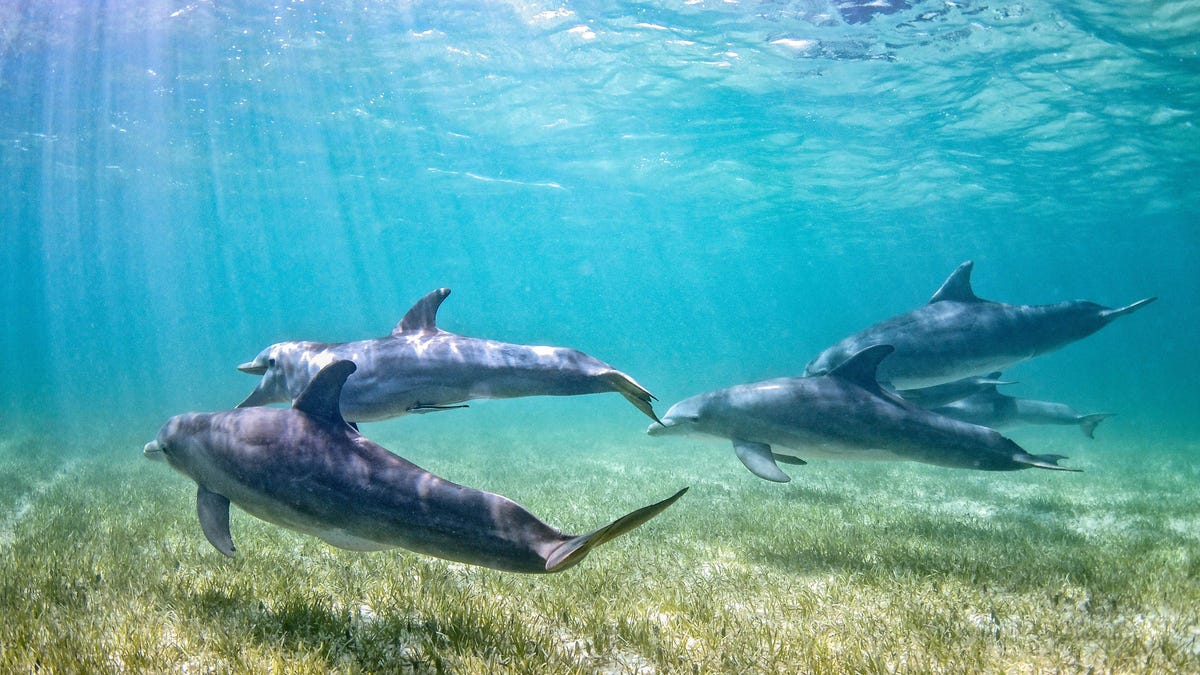Florida scientists have reported the first known and fatal case of highly pathogenic H5N1 avian influenza in a bottlenose dolphin.
Well that’s fucking terrifying.
Only if you’re a Dolphins fan!
I dunno, if I was in Tampa Bay, I’d be watching to see if pirates are next…
Just gonna leave this here – the recent fatality rate in humans is about 30%. There are a tiny number of data points but the point is, it looks to be more deadly than Covid was by quite a lot. And clickbaity news about the 2022 dolphin case aside, it’s clearly everywhere, and able to jump to new mammal species readily.
Since it first arose, H5N1 has been identified in a range of species including mink, dolphins, grizzly bears, foxes, and a polar bear.
It’s been especially devastating for marine mammals; in Argentina, bird flu killed 17,400 southern elephant seal pups, roughly 96 percent of all young born in 2023, researchers estimated.
Maybe I am missing something but assertion that the current public health risk is low seems to be based on more or less nothing. Why is the risk low? People are still working among animals some of whom are definitely infected, every day, in messy conditions. The consequences once it figures out how to spread person-to-person will be somewhere from moderate to apocalyptic, and what we’re doing right now is clearly just half-measures to delay that happening by a little bit. Why is that low risk?
What matters more for public health risk is virility, and mortality tends to have a negative correlation with virility. In simpler terms, the more deadly it is the worse it is at spreading. It’s not a hard rule but is true more often than not, though I don’t know any details about avian flu. I assume if the CDC has determined the public health risk is low that it’s probably because it’s not particularly virile.
virility
Do you mean transmissibility? I get what you mean, but I’ve never heard this word used this way. (Virulence is, more or less, the non-fatal version of mortality – how much damage the disease does – so not that.)
Be that as it may, once the disease is established in a new species it tends to get less harmful because of exactly what you’re talking about – but plenty of diseases through history have been in the short run both fast-spreading and deadly, especially right after they jump into a new population. Which is exactly what H5N1 is doing right now (on all three counts).
One of the reasons how deadly it is correlates to lower spreading is just how quickly deadly things kill.
If something like the original SARS had a 7 day infectious window before killing you things would have been very different.
I’d be interested to know how quickly it incapacitates humans, and how long you’re infectious for.
Edit: changed infectious window, accidentally used a incubation period by mistake.
The risk is low because we have not yet detected a variant with the mutations needed to facilitate human to human spread. If we do it will jump from low to extreme very quickly.
“It is okay! The fire is only in the building next door along with the 10-15 others it spread to. Once we’ve detected it in our building, the risk won’t be low anymore, of course.”
(Edit: Actually, once it’s spreading inside our building the risk won’t be low – we’ve already detected it in our building a couple of times, but it didn’t spread so it’s fine.)
Maybe I am missing something but assertion that the current public health risk is low seems to be based on more or less nothing.
That paragraph kind of reminds me of this…

We could use a new Black Death to lower real estate and rent prices.
I am going to assume you don’t really understand what it would mean if there was a pandemic with a 10-50% case fatality rate in the modern global economy where it would be on every single continent on earth in a matter of days. I can assure you that housing prices would be the last fucking thing on your mind.
It was a sardonic comment.
Yes, obviously the end of the world as we know it would be /extremely/ bad.
the world as I know it is a bit shit tbh
Yeah, but when the old world dies without a new one being born, we’ll all yearn for the days of ‘a bit shit’.
It was a sardonic comment.
Fair enough, and thank you for clarifying. I was really hoping that was the case.
This species jumping is not what you would call a good sign.
To be clear it’s a case going back to 2022, but still concerning.
That’s what happens when you shove a bunch of chickens together in a filthy factory.
And then collect the bedding (an indescribably foul mixture of sodden straw, chicken shit, and feathers) and feed it to your cows.
FUUUUUUUUU
How is this political?
Have you heard of the COVID pandemic, or did you miss it?
Idiots made that political. Are you an idiot?
I think that FDA approved vaccines are safe and effective. Does that make me an idiot in your eyes?
The pandemic itself was not political, because a disease is not political. A fungus isn’t political. Bacteria isn’t political. None of it is political.
Just because a vaccine was approved using politics- doesn’t make it a political event.
Stop moving goalposts. This isn’t a political issue.
A great many things should not be political, and yet…they are.
That was a very simple question. Your refusal to answer tells me all I need to know.
Because I don’t entertain bad-faith questions despite their simplicity.
Just give it time.
This is the best summary I could come up with:
Florida scientists have reported the first known case of highly pathogenic H5N1 avian influenza in a common bottlenose dolphin (Tursiops truncatus).
Though the case dates back to 2022, it’s the latest indication that these flu strains can potentially infect a wide variety of mammals.
The strain in this case did not appear to develop known genetic changes that would make it easier to infect and transmit between mammals, the authors found.
But flu viruses mutate very quickly, leaving open the possibility that some strains will adapt and pick up the right changes that can make them a much bigger threat to mammals both on land and in the sea.
“Human health risk aside, the consequences of A(H5N1) viruses adapting for enhanced replication in and transmission between dolphins and other cetacea could be catastrophic for these populations,” the authors wrote.
The researchers are continuing to investigate the case, hoping to pinpoint the origins of the dolphin’s infection and to better understand the potential for bird flu strains to successfully jump the species barrier to these marine mammals.
The original article contains 512 words, the summary contains 176 words. Saved 66%. I’m a bot and I’m open source!
This is happening really quickly…
Tuna, the chicken of the sea, had been the preferred host but this whole dolphin thing is an unfortunate bycatch incident.
deleted by creator
Did they get Tua?!?!
We’ve had cows, goats, dolphins all recently suffering outbreaks of this. The fact of the matter is that it has already figured out a way to jump to and spread among mammals in general, so going from other mammals to humans is likely only a matter of time.
And with the rate of spread and that fatality rate…yikes. You’re looking at an extinction level event right there.
If this turns into another pandemic, it’s going to make covid look like a mild cold by comparison. And if you thought lockdowns were bad with covid…
Yeah, I’m a wee bit nervous.
I’m not. I’m done being scared after the pandemic, but we are careful now. My family continues to mask in indoor public places most of the time—especially if it’s crowded with a bunch of people we don’t know well who have small children. We had COVID over Christmas and New Year after going mask-free in the late fall. I ended up with COVID psychosis in February, and the health effects are still impacting me as a runner/triathlete up to this point in late April. Until more is done to remedy that crap, I prefer not to risk hurting my pulmonary or nervous system again. I’ve had friends who’ve had this thing about 3 or 4 times and dread to think what their brains and hearts are turning into—especially as they age further (we’re in our 40s/50s). I haven’t had a flu in ages so I suppose it works quite well for it, too.
I laughed out loud when you said extinction level event. Come on now.
I laughed out loud when you said extinction level event. Come on now.
Trump said the same thing about covid. It’s no big deal. It’ll go away soon. Nobody’s going to die from it. Look at how well that turned out.
Bird flu in humans has a fatality rate of over 50% in humans. By comparison, Covid has a fatality rate of <3%.
Covid caused 2 million deaths in the US alone, with a fatality rate of <3%. What the hell do you think would happen with a disease that spreads just as easily if not more so and a fatality rate where half of the people who get it are going to die?
Not to mention that COVID damages the immune system and we’ve been letting it spread like wildfire opening the floodgates for another virus to come in and take advantage. H5N1 in a population with an already damaged immune system could be catastrophic.
I wonder if the lab gets bonus points for every species its inventions cross contaminate!











